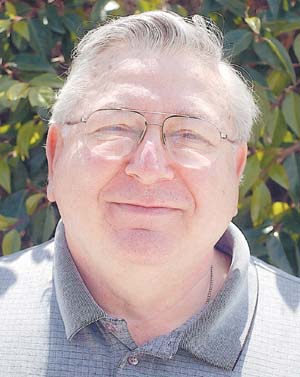By now, most folks know of the scandal involving the small City
of Bell, California. On July 15, 2010, the LA Times broke the story
that Bell, population 37,000, among the poorest in Los Angeles
County, was paying outrageous salaries to many city administrators
and officials. The city manager received $787,637 a year, the
assistant city manager $376,288, the police chief $457,000 and four
of the five city council members received $100,000 each for
part-time work.
By now, most folks know of the scandal involving the small City of Bell, California. On July 15, 2010, the LA Times broke the story that Bell, population 37,000, among the poorest in Los Angeles County, was paying outrageous salaries to many city administrators and officials. The city manager received $787,637 a year, the assistant city manager $376,288, the police chief $457,000 and four of the five city council members received $100,000 each for part-time work.
The base salary for council members was $8,076 per year, but four of the members also sat on city commissions and boards. Those posts earned them an $8,000 per post, per month. Ironically, just two weeks prior to the storm, Bell took a contract to provide police services for the neighboring city of Maywood, which had fired almost all its city employees. Maywood officials said they had no choice; the city could not obtain insurance because of too many past lawsuits, especially involving the Police Department.
Bell’s median household income was about $30,000, the population over 90 percent Latino and more than half were foreign born, but the property tax rate was higher than in Beverly Hills. Firing the officials doesn’t solve the whole problem; the city manager is entitled to an annual pension starting between $600,000 and $880,000 for life and the police chief’s pension starts at $411,300. There you have it, Maywood and Bell, the two faces of California – one city totally broke and the other spending itself into oblivion.
How could this happen? Unfortunately, much of the blame has to fall on the city’s citizens. They were certainly mistreated, but citizen neglect made it very easy for the officials to operate in the dark. The special election allowing Bell to convert to a charter city and thus avoid state salary limits had only that single item on the ballot and fewer than 400 of nearly 10,000 registered voters bothered to vote.
Government often goes to great lengths to hide and confuse the public regarding its decisions and the compensation of public employees and officials. The voters too often allow them get away with it even though this is supposed to be public information. What’s a car allowance worth, how about working at home, overtime, standby pay, platinum parachutes and all the rest?
I can usually guess what’s on the agenda at any city council or board of supervisor meeting by merely looking at who is in the audience. Unless there is the rare hot-button issue, the public does not come, but those with financial, direct interests always show up.
The city council recently started down the road to change police retirement that could end up costing the taxpayers a lot of money in the future; meanwhile, the board of supervisors is battling over the distribution of nonprofit funding, but almost no one from the general public came to examine the figures or ask any questions. That’s exactly the kind of neglect that creates a political vacuum and leads to problems.
As far as I know, we do not have any abuses on the scale of the City of Bell, but we have serious budget and financial problems of our own. The city recently did a 12.5 percent spending “reduction” – some of which appears to be sleight of hand; meanwhile the county General Fund budget has a $10.4 million spending to revenue shortfall at the initial planning stage.
When the public ignores local government and allows small groups to set the agendas and wield almost all the influence on elected officials, they are playing a dangerous game. There may be only a few towns like Bell or Maywood around today, but voter neglect can make any town or even county a Bell or Maywood tomorrow.
Marty Richman is a Hollister resident.










